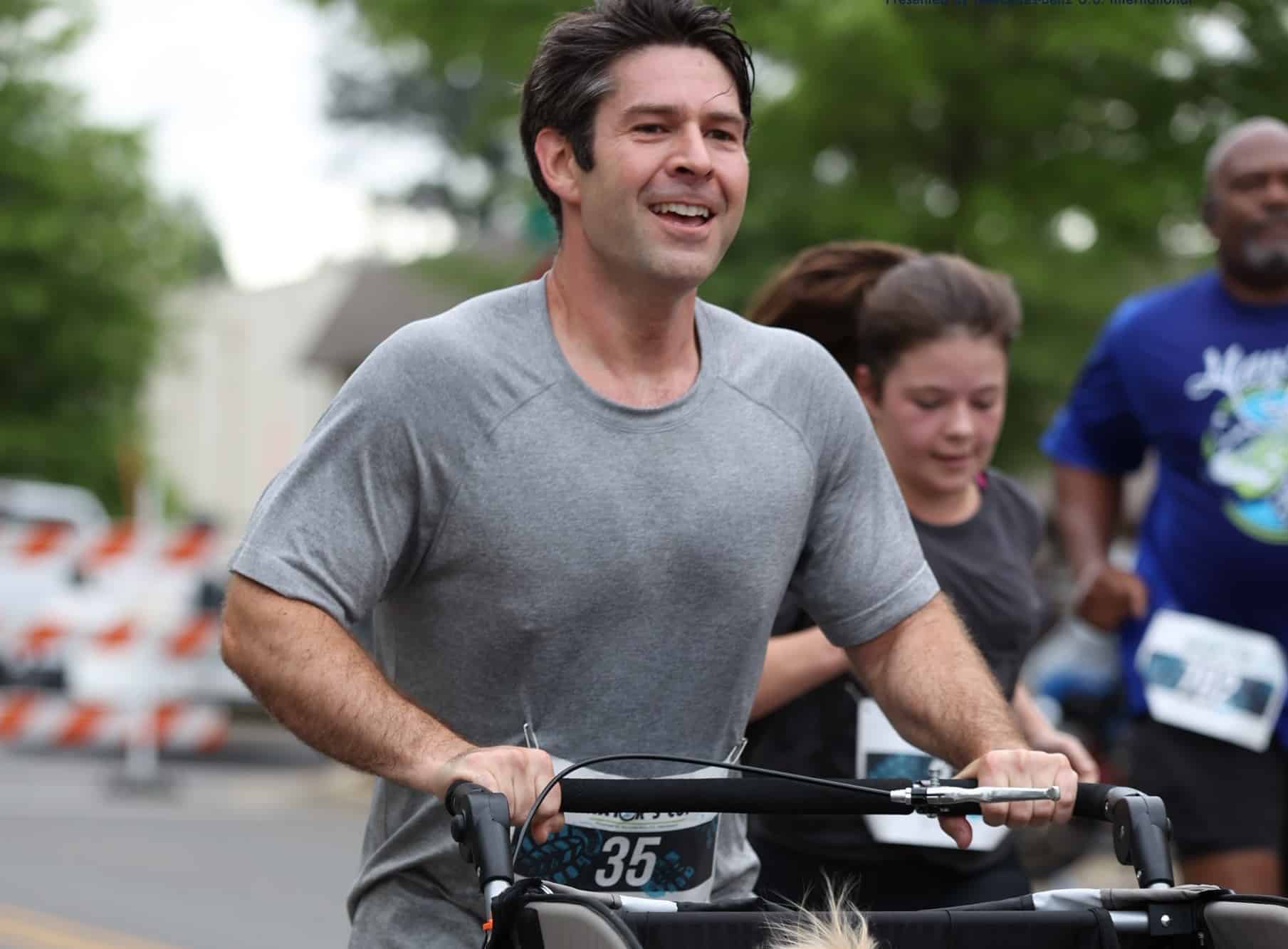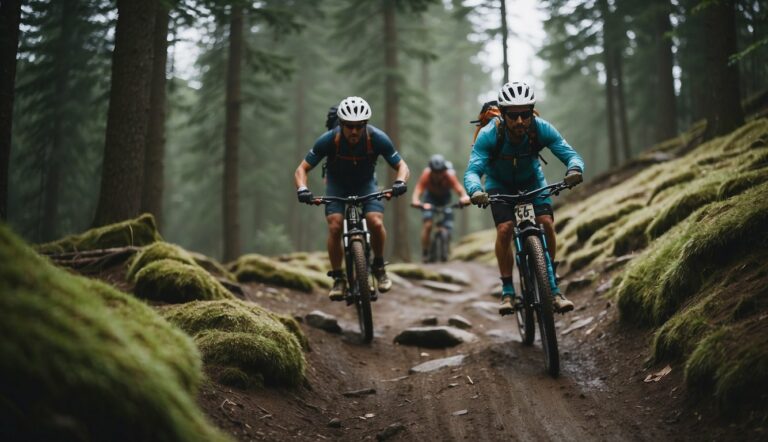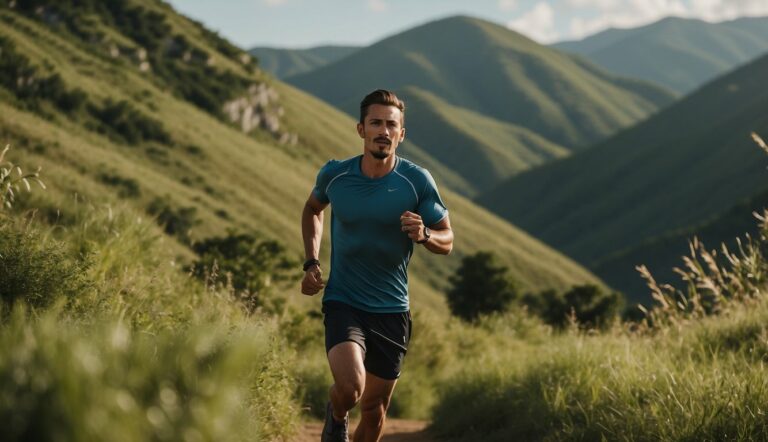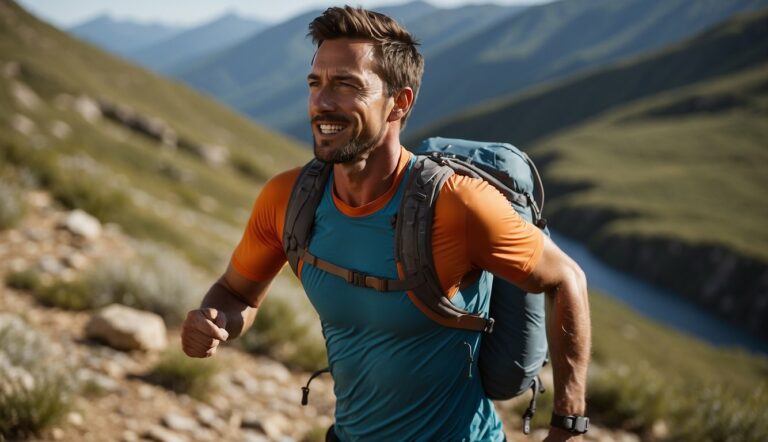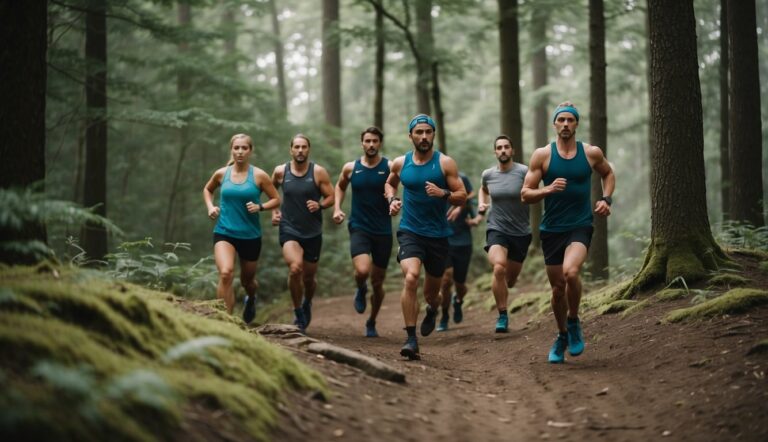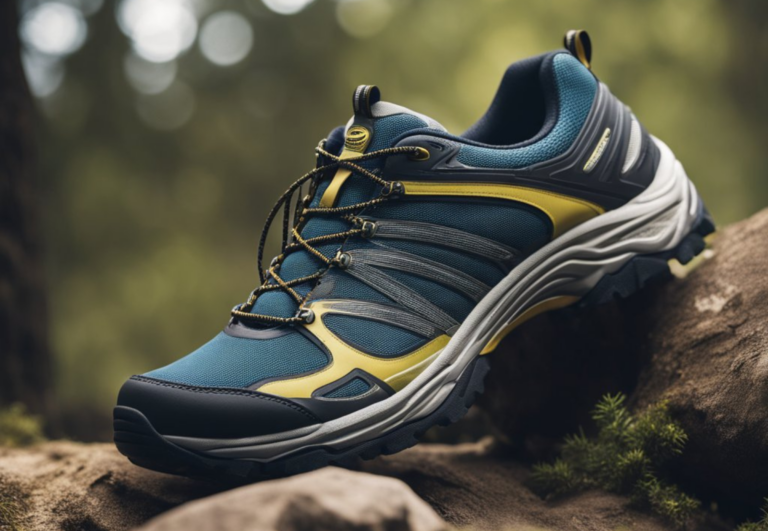Trail Running Camps and Clinics: Elevate Your Off-Road Training
Trail running camps offer an engaging way to enhance your running skills and fitness through a unique and adventurous experience. These camps focus on all aspects of trail running, from technique and training to nutrition and recovery. As a UESCA certified running coach, I have seen firsthand how these camps benefit runners, providing an immersive environment where they can connect with nature and like-minded individuals.
The allure of trail running lies in the diverse terrain and the physical and mental challenges it presents. Whether you’re new to the sport or an experienced trail runner looking to elevate your performance, trail running camps equip you with the tools and knowledge to tackle trails confidently and safely. The camaraderie and shared experiences at these camps create lasting bonds and a sense of community among participants.
My experiences have shown that the best trail running camps combine practical running sessions with informative clinics. These camps often include a variety of activities beyond running, such as yoga and strength training, tailored to boost your running fitness. As a runner seeking to refine your trail running experience, engaging with these camps can offer you a holistic approach to improving your abilities on the trails.
Choosing the Right Camp
Selecting the appropriate trail running camp is crucial to enhance your running experience. It’s important to align your fitness levels and goals with the camp that best suits your needs.
Assessing Fitness and Experience Levels
When considering a camp, I evaluate my current fitness and experience. For beginners, it’s key to look for a camp that emphasizes foundational skills, like proper form and trail etiquette.
Advanced and ultra runners should seek programs that offer challenging terrain and advanced training techniques. Always verify that the camp accommodates your fitness level to prevent injury and maximize learning.
Trail Running Camp Types: From Beginner to Ultra Runners
Camps often cater to specific skill levels:
- Beginner: Focuses on basic skills, trail safety, and increasing endurance.
- Intermediate: Introduces more technical trails, elevation changes, and tailored training plans.
- Advanced/Ultra: Offers high-intensity training with long-distances, often in preparation for specific races like the Leadville or the 14ers of Colorado.
These distinctions help me choose a camp that will push my abilities without overwhelming them.
Considering Location and Terrain
The location of the camp is another critical factor. I am mindful of the altitude and terrain that I’ll encounter. For instance:
- Colorado’s Rocky Mountains: Offer high elevation and technical trails suited for those looking to test their limits.
- Flagstaff and Sedona: Provide diverse landscapes, from red rock canyons to alpine forests, catering to a wide range of expertise.
It’s important to choose a location that matches the kind of trails you wish to run, and that challenges you appropriately.
Training Focus and Activities
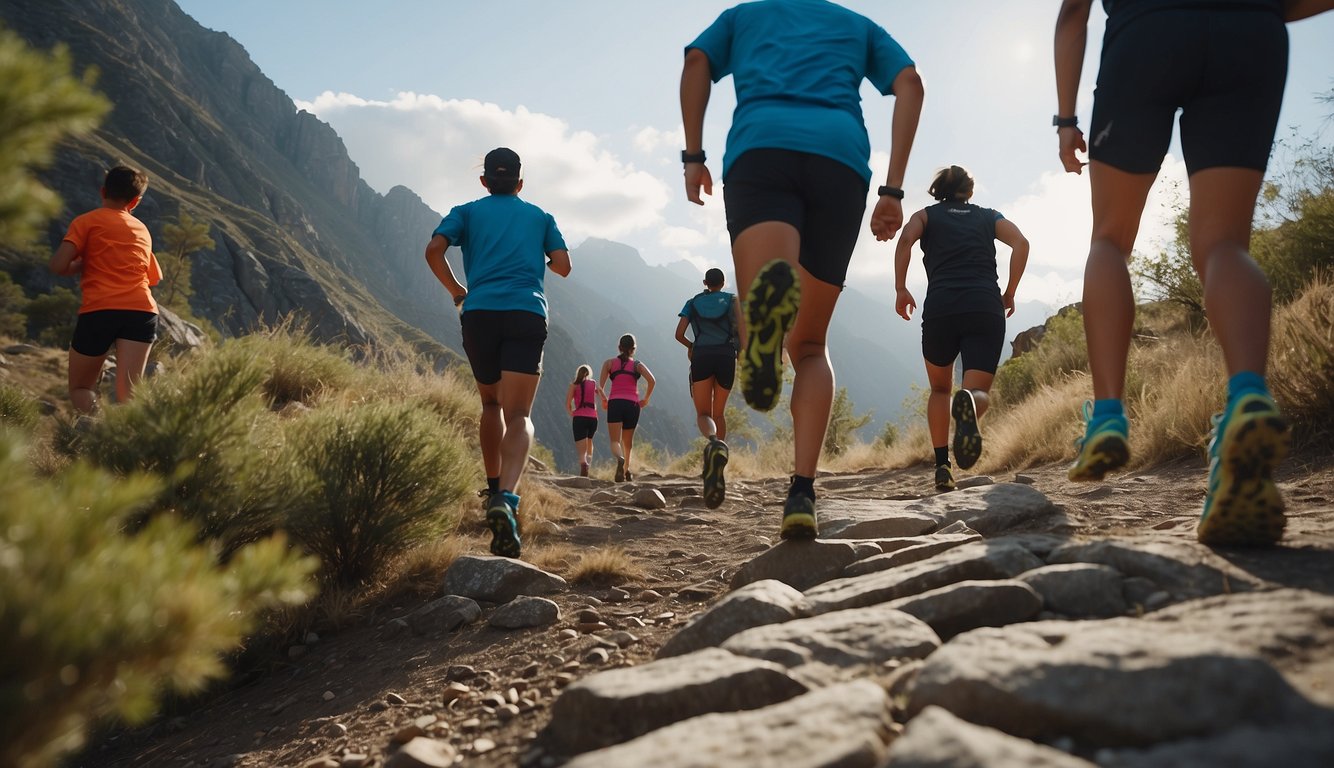
Trail running camps and clinics are designed to improve your performance across various key areas. My programs ensure a holistic approach, focusing on running efficiency, strength, nutrition, and mental strategies.
Running Form and Gait Analysis
Proper running form is the cornerstone of efficient trail running. I conduct gait analysis sessions to identify individual biomechanical patterns, helping runners optimize their form. This analysis typically involves observing a runner’s posture, foot strike, and stride on trails to provide personalized feedback.
- Running Form: Focus on posture, foot strike, arm swing
- Gait Analysis: Use of video feedback for real-time correction
Strength Training and Injury Prevention
Strength training is crucial for trail runners to prevent injuries and enhance performance. My approach involves a combination of bodyweight exercises, resistance training, and the use of foam rollers for muscle recovery. Workout routines are tailored to target core stability, balance, and the muscular demands of trail running.
- Strength Training: Core, balance, resistance exercises
- Injury Prevention: Routine use of foam rollers, dynamic stretching
Nutrition and Dietary Planning
Effective nutrition plans are essential for energy management and recovery. I work with runners to develop meal plans that cater to individual dietary needs and restrictions. Along with common nutrition tenets, I highlight the importance of hydration strategies and the timing of meals relative to training.
- Nutrition: Macro and micronutrient balance, hydration
- Dietary Restrictions: Personalized meal plans to accommodate specific needs
Mindfulness and Mental Preparation
Trail running is as much a mental endeavour as it is physical. Psychological preparation forms an integral part of my coaching. Through wellness workshops and psychology sessions, I guide runners on developing mental resilience, focusing techniques, and stress management, enabling them to maintain composure during races or tough training sessions.
- Mindfulness: Meditation, breathing exercises
- Mental Preparation: Strategies for focus, overcoming psychological barriers
By addressing these areas collectively, I ensure a comprehensive training experience that promotes long-term success and enjoyment in trail running.
Camp Logistics and Planning
When organizing a trail running camp, meticulous planning is crucial. Attention to travel arrangements, daily activity schedules, and packing the right gear will ensure a smooth and enjoyable experience.
Travel and Accommodation
Travel: As an experienced running coach, I recommend booking travel and accommodation well in advance. Consider transportation options like carpools, shuttles, or rental vehicles for ease of access to trailheads.
Travel Insurance is a wise investment for protection against unexpected trip cancellations or medical emergencies during your camp.
Accommodations: Chart out stay options that suit the camp’s needs, ranging from camping sites for a more immersive experience to local lodges that can provide comfort after a day’s run.
Schedule and Daily Routines
Activities: Each day should have a structured plan that alternates between running sessions and educational workshops. Keep runs varied, including sunrise and sunset runs, while ensuring ample rest and recovery time.
Besides running, include activities that enrich the vacation experience, such as navigation workshops or guest speakers.
Daily Routine:
- Morning: Morning runs or drills starting with warm-up exercises.
- Mid-day: Break for meals, relaxation, or shop visits for gear checks.
- Evening: Group educational sessions followed by a group dinner facilitating social interactions.
Packing Essentials: Gear and Clothing
Gear Checklist:
| Item | Quantity | Notes |
|---|---|---|
| Trail Running Shoes | 1 pair | Proper fit and grip are essential |
| Hydration System | 1 | Select based on preference: belt, pack, or handheld |
| GPS Device/Watch | 1 | For tracking routes and performance |
| Headlamp | 1 | A must for early morning or late evening runs |
Clothing:
- Lightweight, moisture-wicking running clothes for layering.
- Weather-appropriate attire like a rain jacket or thermal wear, depending on the forecast.
Remember, proper preparation is paramount to the success of any trail running camp. Keep these logistics and planning tips in mind, and you’re set for a fantastic running adventure.
Community and Networking
In trail running camps and clinics, fostering a sense of community and networking is pivotal. Both novice and experienced trail runners alike find value in the connections they make with coaches and fellow participants.
Building Relationships with Coaches and Runners
My experience as a UESCA certified running coach has shown me that building relationships with coaches enhances the learning experience. Coaches like Scott Jones, Rob Krar, and Hillary Allen are often accessible at these camps.
For instance, at Rob Krar’s ultra camps, participants get direct mentorship which can lead to improved running techniques and personal growth. Establishing a rapport with coaches can provide lifelong guidance and a touchpoint for future networking opportunities.
- Scott Jones: Known for structured training.
- Rob Krar: Focuses on community and resilience.
- Hillary Allen: Advocates for a mindful and balanced approach to training.
Building bonds with fellow runners is equally important. It cultivates a support system that extends beyond the camp. This becomes evident in co-ed trail running camps, where the blend of social dynamics contributes to a richer, more varied community experience.
Group Dynamics and Shared Experiences
Group dynamics in trail running camps facilitate shared experiences that often lead to lasting friendships. The collaborative atmosphere in these settings allows runners to learn from each other and tackle challenges together.
Shared experiences in camp activities such as:
- Group Runs: Foster camaraderie and mutual support.
- Training Sessions: Enable knowledge exchange and collective growth.
Geoff Roes, a renowned figure in the trail running community, has been a proponent of this model, emphasizing the role of shared experiences in personal development. As runners and companions navigate trails, their collective experiences lay the groundwork for a tightly-knit community.
Exploring Regional Highlights
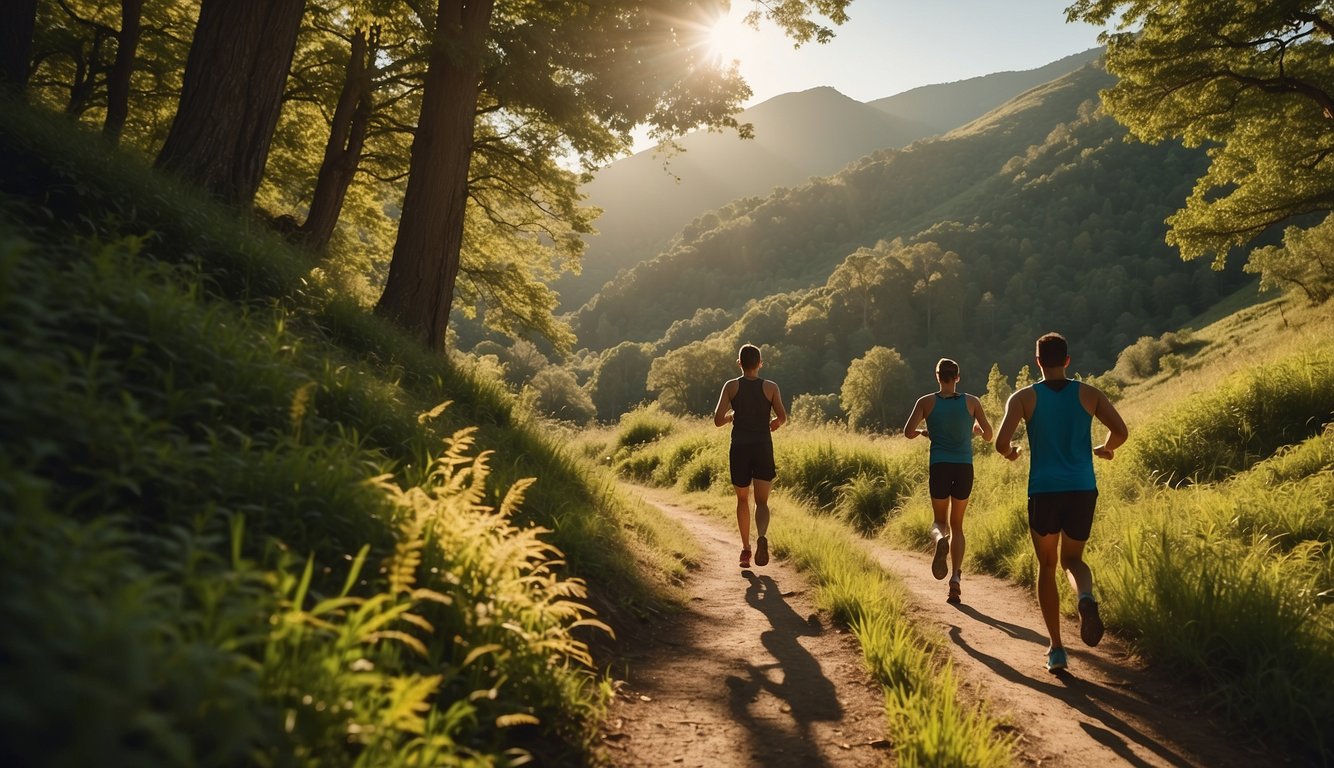
Trail running camps and clinics offer unique opportunities to experience localized running environments, combining physical challenges with cultural and scenic treasures.
Cultural and Natural Attractions
Alaska Mountain Ultrarunning Camp provides an immersive experience where the majesty of towering peaks and the wilderness become part of the running journey. The historic downtown Leadville, with its rich mining heritage, sets a backdrop for running retreats such as Run Wild Retreats, where participants can soak in the town’s rustic atmosphere post-run.
Cultural Highlights:
- Alaska Mountain Ultrarunning Camp: Experience the raw beauty of Alaska’s mountains.
- Historic Downtown Leadville: Discover the mining history after a fulfilling run.
Adventure Runs and Local Trails
The runs through Turquoise Lake and over Hope Pass offer not only rigorous training with the use of trekking poles for better stability but also spectacular views.
Technical downhill running sessions serve as a practical adventure, enhancing runners’ agility and control, which are critical for trails like Mosquito Pass.
Adventure Trails:
- Turquoise Lake: A scenic loop that’s as breathtaking as it is challenging.
- Hope Pass: A part of the iconic Leadville 100, known for its high altitude and rugged terrain.
Running Techniques:
- Technical Downhill Running: Managed sessions to improve technical skills on descents.
- Guided Runs: Offered to help runners navigate and learn about the local trails safely.
